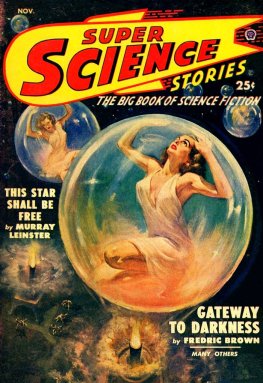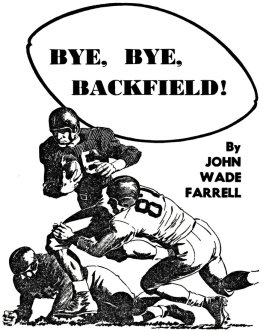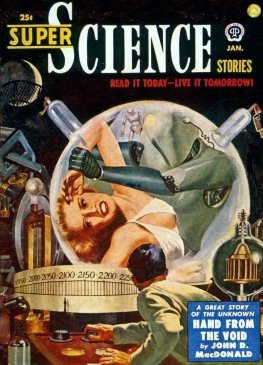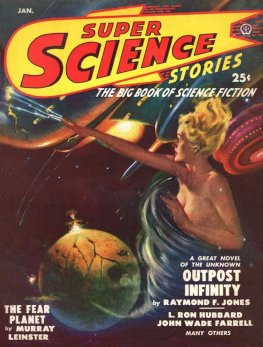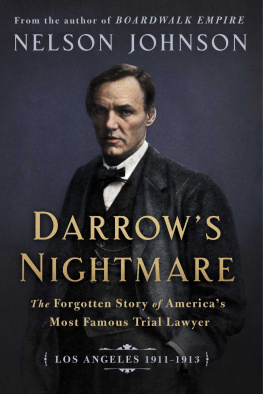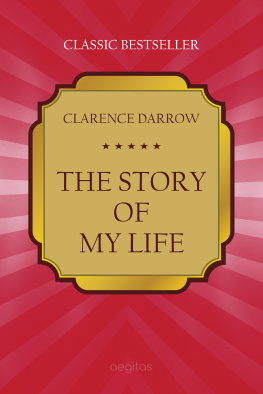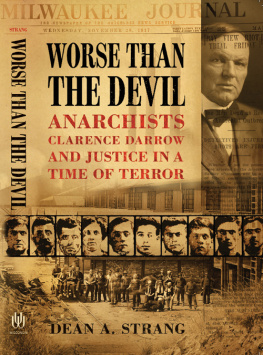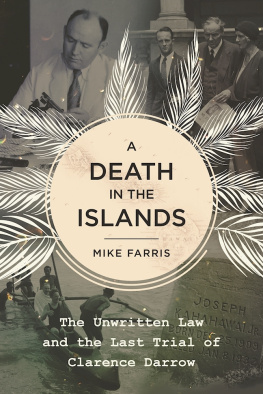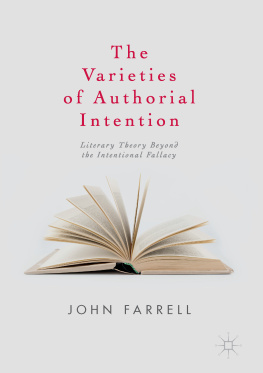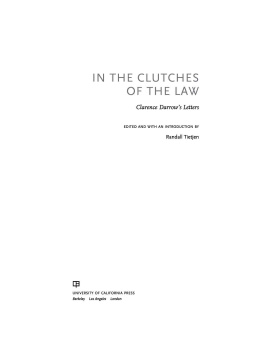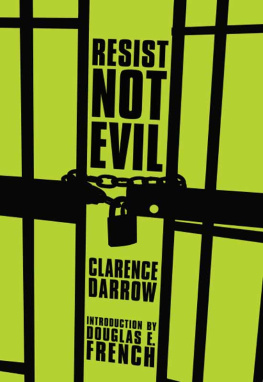John A. Farrell - Clarence Darrow: Attorney for the Damned
Here you can read online John A. Farrell - Clarence Darrow: Attorney for the Damned full text of the book (entire story) in english for free. Download pdf and epub, get meaning, cover and reviews about this ebook. year: 2011, publisher: Doubleday, genre: Non-fiction. Description of the work, (preface) as well as reviews are available. Best literature library LitArk.com created for fans of good reading and offers a wide selection of genres:
Romance novel
Science fiction
Adventure
Detective
Science
History
Home and family
Prose
Art
Politics
Computer
Non-fiction
Religion
Business
Children
Humor
Choose a favorite category and find really read worthwhile books. Enjoy immersion in the world of imagination, feel the emotions of the characters or learn something new for yourself, make an fascinating discovery.
- Book:Clarence Darrow: Attorney for the Damned
- Author:
- Publisher:Doubleday
- Genre:
- Year:2011
- Rating:4 / 5
- Favourites:Add to favourites
- Your mark:
- 80
- 1
- 2
- 3
- 4
- 5
Clarence Darrow: Attorney for the Damned: summary, description and annotation
We offer to read an annotation, description, summary or preface (depends on what the author of the book "Clarence Darrow: Attorney for the Damned" wrote himself). If you haven't found the necessary information about the book — write in the comments, we will try to find it.
Clarence Darrow: Attorney for the Damned — read online for free the complete book (whole text) full work
Below is the text of the book, divided by pages. System saving the place of the last page read, allows you to conveniently read the book "Clarence Darrow: Attorney for the Damned" online for free, without having to search again every time where you left off. Put a bookmark, and you can go to the page where you finished reading at any time.
Font size:
Interval:
Bookmark:
ALSO BY JOHN A. FARRELL
Tip ONeill and the Democratic Century


Copyright 2011 by John A. Farrell
All rights reserved. Published in the United States by Doubleday,
a division of Random House, Inc., New York,
and in Canada by Random House of Canada Limited, Toronto.
www.doubleday.com
DOUBLEDAY and the portrayal of an anchor with a dolphin
are registered trademarks of Random House, Inc.
constitutes an extension of this copyright page.
Portions of this work were previously published in American History.
Excerpts from The Story of My Life by Clarence Darrow reprinted
by permission of the Darrow family, all rights reserved.
Title page photograph courtesy of
Library of Congress Prints & Photographs Division
Jacket illustration Chicago History Museum/Getty Images
Library of Congress Cataloging-in-Publication Data
Farrell, John A. (John Aloysius)
Clarence Darrow : attorney for the damned / John A. Farrell.
p. cm.
Includes bibliographical references and index.
1. Darrow, Clarence, 1857-1938. 2. LawyersUnited StatesBiography. [1. Lawyers.]
I. Title.
KF373.D35F37 2011
340.092dc22
[B] 2010046273
eISBN: 978-0-385-53451-2
v3.1
To Caitlin and John


Some rude awakening must come.

C larence Darrow, sitting at his desk in the law offices of the Chicago & North Western Railway
Darrow had just turned thirty-six. He was a tall man for his time, with high cheekbones and a formidable brow that could give him the look of a young Lincoln: no disadvantage in Illinois. His eyes were a soft blue and his smile, a law partner would recall, was wreathed in good nature and irresistible charm. He had a kind of rough charisma that, he was discovering, charmed the pretty girls who attended his talks and lectures.
Small-town Ohio could not hold him and so he had come to Chicago, to the flickering gaslight, the smoke and cinder, the clamor and hoot and honk of that most American city. He had applied himself, in the courts by day and by making the rounds of political clubs and debating societies in the evenings. And he had sought as mentors rich and famous men, and had prospered from their interest. If Darrow sought a template for success, he needed look no further than his boss and patron, the railroads general counsel, whose office was next to his in the law department at Fifth Avenue and Lake Street, in downtown Chicago.
William C. Goudy was a trailblazer in a new specialty of the industrial age: the corporation lawyer. With his bearded chin and stern demeanor, Goudy looked like an Amish elder, and though friends insisted that he had a warm heart, he was cold and direct in his professional affairs. He was said to be a millionaire, and Darrow knew him as ultra conservative.
In the
Goudy and the railroad were, this day, engaged in one such battle with the people of Chicago. That great midway between the crops and natural resources of the West and the markets and capital of the East was a wicker of railroad tracks. Five million engines and freight cars passed through Chicago each year, on 1,400 miles of rails. As the citys population leaped, so did the number of those killed and injured by trains traversing its roads and alleys at the thousands of street-level crossings. It was Darrows duty to represent the railroad in court, fighting to limit the compensation sought by the victims or their families.
The carnage was ghastly. A strangers first impression of Chicago is that of the barbarous gridironed streets, a British visitor wrote, his second is that of the multitude of mutilated people the mangled remnant of the massacre. In a single month that spring, there were forty-five deaths. One story suffices, that of the mother driving home, who froze at the roar of an approaching train. A passerby pulled her from the drivers bench, but her two young daughters were left behind to be shattered and tossed in the shards of the carriage as their wounded horse bellowed in pain.
But the railroads were tough, and abetted by public officials who collected lavish bribery year after year, the Chicago Times reported. When, finally, the city council voted to compel the railroads to raise their tracks, the companies went to court. There is no power on earth which can compel us to elevate our tracks, said a confident
H ERE, THEN, WAS a blueprint for Darrows aspirations. He was no scion of a wealthy family like his liberal friends, the muckraker
Yet Darrow chafed in corporate harness. There was something missing in the Goudy model. If Darrows cunning was a defining attribute, more so was his empathy. He was sensitiveness and egotism all twisted as the strands of a rope a great character of wonderful sweetness, of profound intelligence, of Godlike patience and tendernessshot through with queer pettinessabout money, about criticism, one of his lovers, Mary Field Parton, would confide to her diary. What saved him was his extraordinarily acute compassion, she concluded, the edges of his emotions sensitive as the antennae of insects.
Darrow felt guilty working for a corporation, where his legal skills and his bosss clout were employed at union busting, or to limit the relief sought by the pitiful victims of the railway crossings. He longed for peace of mind. It seems to me, and for me, that I have no right to save myself when the injustice is so great, he would tell Addams.
Around him was injustice in abundance. The slaughter at
Chicago witnessed all the eras ills. Drenched in blood, bone-weary workers slaughtered the illimitable herds of hogs and cattle that clanked by them on the assembly lines of the stockyards. At McCormick Reaper and other storied industrial works, union organizers fighting for higher wages or an eight-hour day were locked out, harassed, and beaten by police. The houses of prostitution never closed in Little Cheyenne and the Levee, nor the predatory gambling and drinking dens. The city was divided along class lines and still seething that spring from the 1886 bombing
Darrow had delved into politics, joining the movement to assist the Haymarket defendants and employing his talents and political connections to persuade the Illinois legislature to pass a bill regulating sweatshops and child labor. More than a year before, he had written to Lloyd, confessing his shame at working for the railroad and praising a protest that his friend had led after a police raid on a union meeting. You dare to say what is true, Darrow told him. Your speech made me feel that I am a hypocrite and a slave, and added to my resolution to make my term of servitude short. But he could not summon the will to act. The months passed, and his time of servitude dragged on.
D ARROWS CONSCIENCE WAS still struggling with his comfort on the morning of Thursday, April 27, when, shortly after eleven a.m., Goudy finished dictating a letter, dismissed his secretary, and summoned his first visitora retired Civil War hero, General John McArthurinto his office. Darrow prepared to join them.
Good morning, Judge, McArthur said, greeting his friend Goudy. Then: You dont look very well are you ill?
Next pageFont size:
Interval:
Bookmark:
Similar books «Clarence Darrow: Attorney for the Damned»
Look at similar books to Clarence Darrow: Attorney for the Damned. We have selected literature similar in name and meaning in the hope of providing readers with more options to find new, interesting, not yet read works.
Discussion, reviews of the book Clarence Darrow: Attorney for the Damned and just readers' own opinions. Leave your comments, write what you think about the work, its meaning or the main characters. Specify what exactly you liked and what you didn't like, and why you think so.



